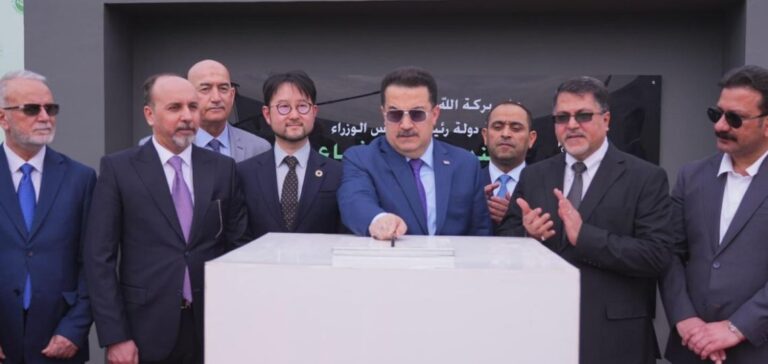The Iraqi government has begun construction of its first waste-to-energy plant in Baghdad, marking a significant step in its efforts to diversify electricity generation. The official launch took place on 20 March during a ceremony led by Prime Minister Mohammed Shia al-Sudani, attended by senior national officials and industrial partners.
Valued at an estimated $500 mn (approximately €461 mn), the project is designed to process 3,000 tonnes of solid waste per day using three incineration lines and will include a 100 MW steam turbo-generator unit. It is expected to generate 780 million kilowatt-hours annually, enough to meet the electricity needs of around 10 million people. The site is also projected to create 500 direct local jobs, according to figures shared by event organisers.
Industrial deployment and strategic presence
The infrastructure development is being managed by Chinese company SUS ENVIRONMENT, through its subsidiary SUS INTERNATIONAL, which will coordinate technical operations and knowledge transfer. Eric Zhan, Chief Executive Officer of SUS INTERNATIONAL, stated the project would be developed as “a pioneering model”, highlighting the company’s commitment to collaborating with local institutions in waste management.
The Prime Minister welcomed the introduction of the technology, describing it as “the most modern in the region”, as part of a national strategy for municipal waste treatment. This development aligns with broader urban infrastructure modernisation plans, aimed at reducing pressure on Iraq’s power grid and improving waste management in densely populated areas.
Institutional backing and international partnerships
The inauguration ceremony was attended by several government representatives, including Haider Mohammed Makkiya, Chairman of the National Investment Commission, Ziyad Ali Fadel, Minister of Electricity, Abdul Alawi, Governor of Baghdad, and Ammar Mosa, Mayor of the capital. Representatives from Chinese-funded enterprises were also present, signalling strengthened cooperation between the two countries in energy and infrastructure sectors.
Iraq continues to open up to foreign investment through large-scale energy projects, amid persistently high electricity demand. This project complements other ongoing initiatives aimed at diversifying energy sources and integrating industrial waste solutions into Iraq’s urban framework.






















